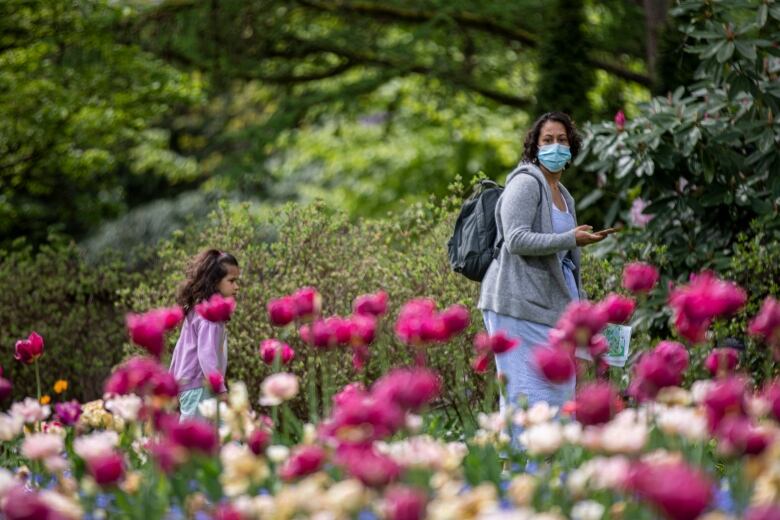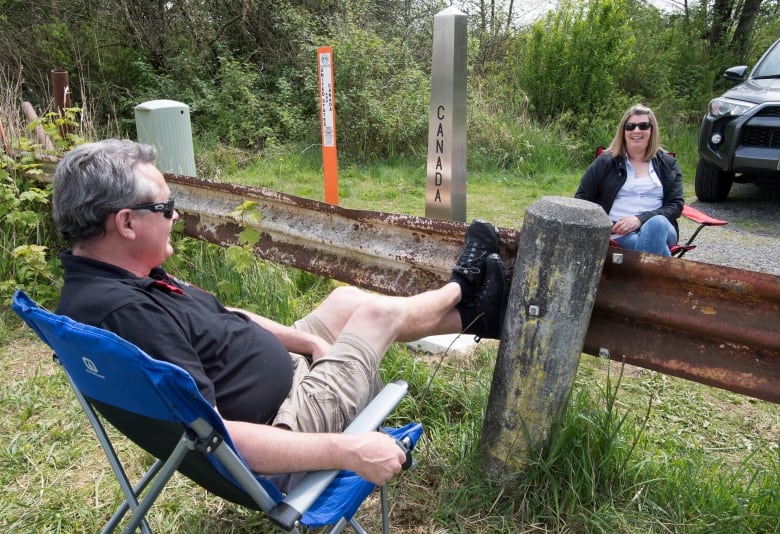Canada’s chief public health officer struck an optimistic tone about the COVID-19 pandemic on Saturday, saying that efforts to flatten the curve are working as provinces across the country reported more positive figures. Here’s a look at what’s happening in Canada, the U.S. and around the world.
CBC News Network showcases the best of CBC journalism, covering breaking stories with speed, and adding context and meaning along the way. CBC News Network is also the destination for original journalism, with added depth from CBC News bureaus across the country and around the world. 0:00
The latest:
- The lives behind the numbers: What we know about the first 1,000 COVID-19 deaths in Canada.
- INTERACTIVE | See the latest data on coronavirus cases in Canada.
- Have a coronavirus question or news tip for CBC News? Email: Covid@cbc.ca
Canada’s top public health official struck an optimistic tone about the COVID-19 pandemic on Saturday, saying that efforts to flatten the curve are working as provinces across the country reported more positive figures.
“By following public health recommendations, we have collectively brought down the rate of infection. We are flattening the curve,” Dr. Theresa Tam said in a news release as federal officials and the prime minister took a break from their daily news conferences.
“While we can continue to be cautiously optimistic, it is important that everyone remains aware of our duty to protect one another, especially those who are most vulnerable, as we navigate the next few weeks.”
No active cases in N.B.
The message came as New Brunswick reported they had no more active cases of COVID-19 on Saturday after two weeks without a new infection, and Ontario Premier Doug Ford said his province could get through the pandemic faster than previously expected.
“We’re seeing a gradual downward slope in the public domain, and the lower we get the more we can open up and get back to the new normal,” Ford said.
“I don’t know the exact time … but if we keep going the way we’re going, we’re going to get out of this a lot sooner than we thought we might’ve been able to get out a couple of months ago.”
At the provincial legislature, demonstrators gathered for a second Saturday in a row for an anti-lockdown protest. Ford blasted the protesters for disrespecting the Canadian flag by flying it upside down during the demonstration.

“I understand, people are hurting out there and people want to get back out there,” Ford said. But he added that flying the flag upside down disrespects members of the Armed Forces who are overseas, as well as those helping in long-term care facilities in Ontario.
“What they’re doing is putting their lives in jeopardy as far as I’m concerned with congregating side-by-side,” he said.
Ford said he respected their right to protest but wondered whether it’s fair that mothers with their children receive fines for being in parks while anti-lockdown protesters aren’t fined.
More lockdown rules being lifted
Provinces across Canada are preparing to start relaxing lockdown rules in the coming week.
Businesses such as gardening centres and auto dealerships will be allowed to open in Ontario on Monday, while residents in Newfoundland and Labrador will be allowed to interact with one household other than their own.

Quebec has announced plans to gradually reopen daycares, elementary schools, retail businesses, construction and manufacturing during the month of May.
That province has seen most of its deaths in long-term care homes, and Quebec Premier François Legault has said the fight against COVID-19 is entirely different in those facilities — an argument Ontario’s premier agreed with on Saturday.
“There’s two different worlds right now we’re fighting this virus, one in long-term care homes and one in the public domain,” Ford said. “In the public domain, everyone has done an incredible job … and that’s the reason why we see the trend going down.”
As of Saturday evening, Canada had 56,714 confirmed and presumptive coronavirus cases, with the majority concentrated in Ontario and Quebec. Provinces and territories list 23,814 of the cases as resolved or recovered. A CBC News tally of COVID-19-related deaths based on provincial data, regional health information and CBC’s reporting lists 3,656 deaths in Canada and two known coronavirus-related deaths of Canadians abroad.
The contagious respiratory illness causes mild or moderate symptoms for most people. For some, especially older adults and people with existing health problems, it can cause more severe illness or death. There is no proven treatment or vaccine for the virus, which first emerged in China in late 2019.
‘We cannot afford any missteps’
British Columbia’s top medical official Dr. Bonnie Henry urged people to stay vigilant, asking anyone with symptoms to contact health officials and take measures to protect their family and community members.
“It is far too easy to tip the scales against us and undo the hard work and sacrifice that everybody here in B.C. has made,” she said Saturday as the province announced just 26 new cases.
“We cannot afford any missteps as we look to ease our restrictions in the coming days and weeks.”

Meanwhile, Prime Minister Justin Trudeau spoke with his counterpart in New Zealand, Jacinda Ardern, to share information about fighting the pandemic while protecting the economy.
A readout of the call said the two leaders also spoke about the need to keep supply chains working throughout the global crisis, particularly in regards to medical supplies.
New Zealand has widely been seen as a success story in the effort to curb the spread of COVID-19.
WATCH | Canada’s economy to be particularly hard hit by COVID-19, says expert
Canada faces several economic disadvantages as it emerges from the pandemic but having the U.S. as its major trading partner could help, says Peter Hall, the chief economist for Export Development Canada. 7:36
What’s happening in the provinces and territories
British Columbia’s provincial health officer, Dr. Bonnie Henry, announced on Saturday a new community outbreak at a poultry plant, where there are three confirmed cases. Henry also said there were 26 new COVID-19 cases in the province on Saturday, bringing the current total to 2,171. Read more about what’s happening in B.C.
WATCH | Travellers arriving in B.C. met with strict quarantine instructions:
As travellers land in B.C., they are expected to have detailed quarantine plans and will receive followup calls a few days later. 2:07
Alberta reported 97 new cases on Saturday, the first time in weeks the daily new cases dropped below 100. The province also reported two new deaths. Read more about what’s happening in Alberta.
WATCH | Edmonton grandma overcomes broken pelvis, pneumonia and COVID-19:
Edmonton grandma overcomes broken pelvis, pneumonia and COVID-19. 0:41
Saskatchewan announced that its number of cases has climbed to 421, with six new cases recorded on Saturday. Of the new cases included in the update, four are in the North, one is in Saskatoon and one is in Regina. Northern leaders say drastic action may have to be taken unless more people start following public health orders, as they say some people are still trying to go around the restrictions. Read more about what’s happeni

